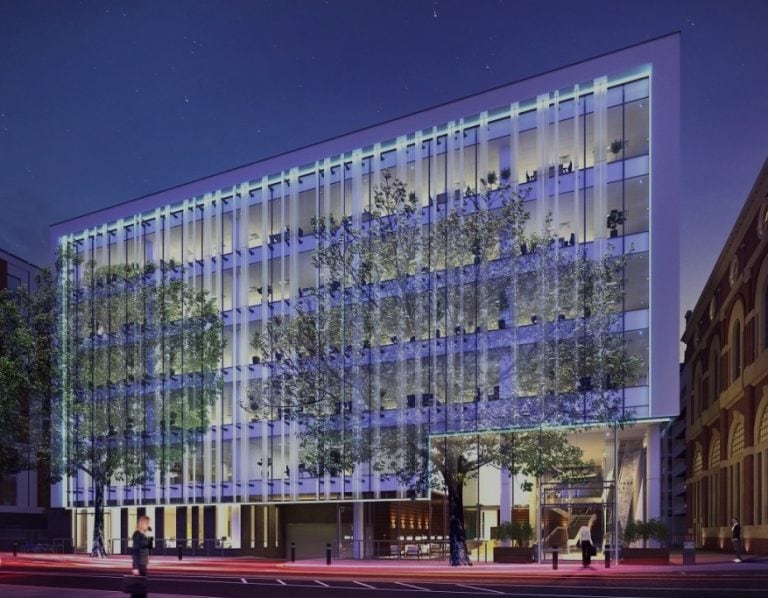We need true collaboration to create a more sustainable built environment

Both customer and contractors have a responsibility to tackle global and local sustainability challenges. They must drive each other harder to do more. For contractors they must actively engage their customers to understand their sustainability goals and work with consultants and the supply chain to identify solutions. Customers must demand more from their contractors and they must not be afraid to challenge the status quo.
We’ve recently handed over Aurora, Finzels Reach in Bristol. This speculative, Grade A office in the centre of Bristol is an exceptional building where sustainability was central to the focus of the project and a priority for our customer, Cubex.
Because of the importance placed on sustainability by Cubex and the challenge set (including accreditation to BREEAM Outstanding and LEED Gold standards), the design team, supply chain and site team had to make sustainability a real emphasis and together we had to overcome unique challenges along the way. Of course, at Willmott Dixon we always strive to construct in the most sustainable way possible, but this project required some extra focus from everyone involved and that was driven by our customer. The result being one of the most sustainable buildings we’ve built to date.
In every area, Aurora beats its targets for efficiency, making it a truly low impact building. The building is exceptionally cost-effective to run meaning a lower service charge for its occupiers and an excellent environment to work in. It’s refreshing to see a private developer put so much importance on sustainability. There are altruistic motivations that are clearly a part of the Cubex ethos, they know this is the right thing to do; however, they know that it makes business sense too. For Bristol and the built environment in the region, it sets a new benchmark for which others will need to follow. This can only be a good thing for the sustainability agenda in our region.
The relationship we have with Cubex has led to us striving to achieve more together and we’re now working on East Street Mews, a project to tackle Youth homelessness in Bristol. East Street Mews is a ground-breaking initiative that will create contemporary apartments to provide much-needed affordable housing for young homeless people in Bristol. This project brings together a team of local businesses, charities and experts to create vital housing that will transform the lives of young homeless people in Bristol. This is a demonstration of how long term relationships between customers and contractors (and the wider supply chain) focused on sustainability and collaboration can lead to positive outcomes for the communities in which we all operate. Our customer is challenging us to achieve more.
Sustainability is an important factor for many of our customers; a recent survey told us 78% of our customers place importance on sustainability when awarding work. However, that leaves a large proportion that doesn’t place importance on sustainability. Further questioning of those who responded that sustainability wasn’t important told us that factors of successful projects other than time, cost and quality include supporting the local community, efficiency, flexibility and life cycle considerations. These are all deliverables of a sustainable building. This suggests to me that there is a failure in communication. We’re talking about the same thing but using different language. This is acting as a barrier to a sustainable built environment. As contractors we need to work harder to understand our customers’ priorities and challenge ourselves to reflect these priorities in the sustainability of the buildings we deliver.
We need to communicate sustainability more effectively; I compare communicating sustainability to being like a chameleon, always changing depending upon who you’re communicating with. We need to talk to our customers in their language so the benefits of our technical expertise are not lost in translation.
You can follow the UK Green Building Council on Twitter, LinkedIn, and Facebook.
Related
Navigating the challenges around hard-to-recycle materials

What are the environmental impacts of construction materials? An introduction to Embodied Ecological Impacts

Why is social value so crucial when developing and managing commercial real estate?

Biodiversity Net Gain: Are you ready for the incoming legislation?

